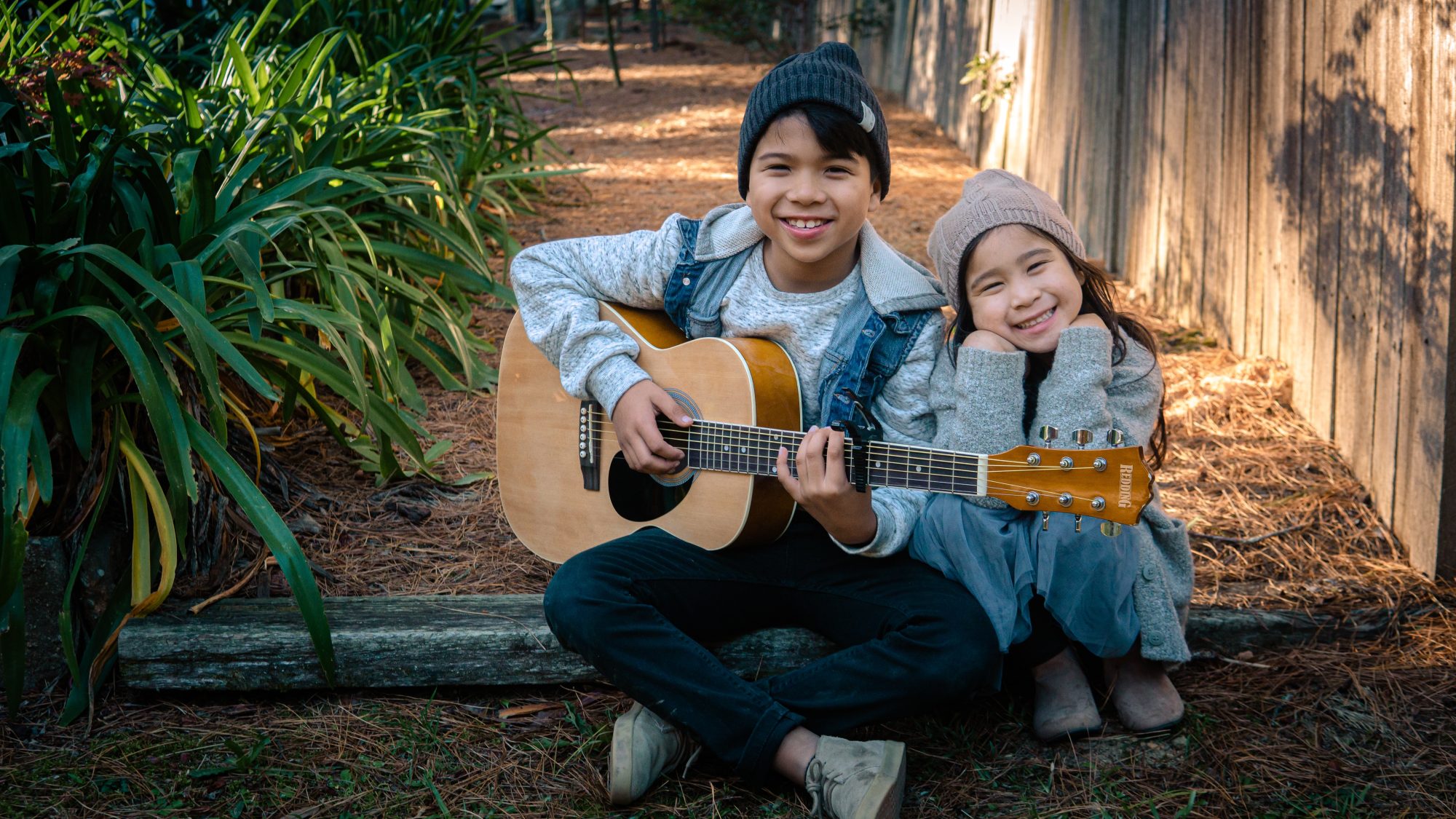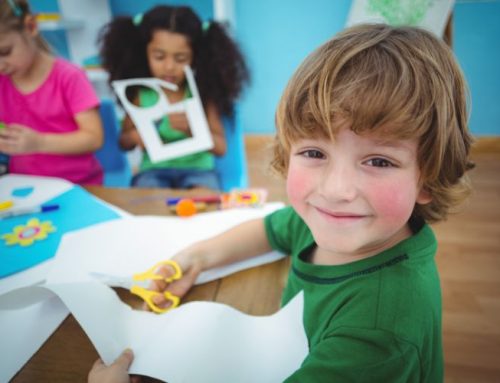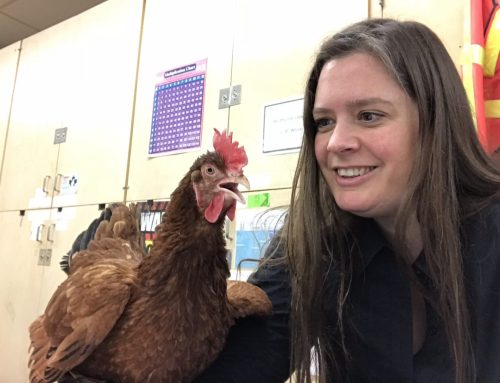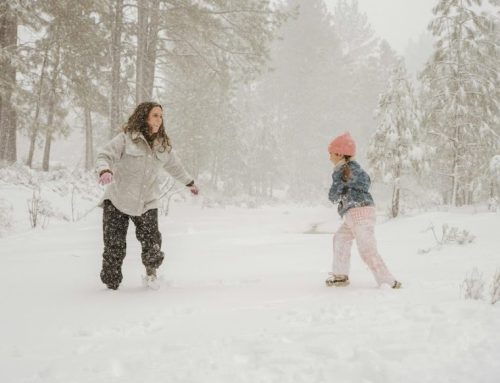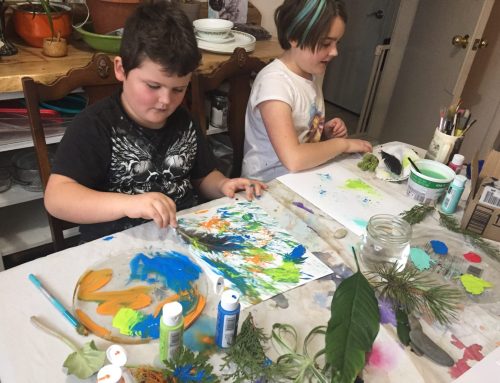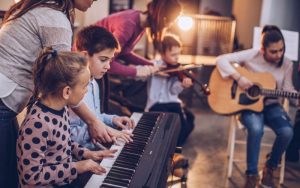 Music has the incredible ability to move people, both physically and emotionally. It stirs up memories, provides inspiration, increases blood flow and reduces anxiety and stress.
Music has the incredible ability to move people, both physically and emotionally. It stirs up memories, provides inspiration, increases blood flow and reduces anxiety and stress.
“Music is also a fantastic way to create bonds with others,” says HomeLearners Network Guide and SelfDesign Learning Consultant, Erin Davies. “Listening to music, moving to music and making music promotes a sense of being in sync with other people, and doing this to the beat of music increases coordination.”
Listening to music contributes to overall well-being, and playing music helps kids develop language, math and teamwork skills. It also helps kids build self-esteem, regulate emotions, and connect to people from different walks of life.
Erin has been a teacher for over 20 years, much of which has been spent teaching music and musical theory. We sat with her to discuss why playing music works wonders for your kiddo’s healthy development!
Increases vocabulary and linguistic comprehension
“Singing along to music helps kids develop oral language skills and reading readiness,” says Erin.
Not only can sing-alongs be great opportunities for kids to pick up new and exciting words, but they encourage kids to break down and manipulate words to create rhythm and rhymes.
“Singing along requires a lot of language awareness and rhyming is a skill that kids do not automatically develop” says Erin.
Opens doors to skills in mathematics
 Playing instruments, singing and even tapping along to songs are great ways for kids to gain a sense of timing and beat, which are closely related to mathematical concepts like counting and patterns.
Playing instruments, singing and even tapping along to songs are great ways for kids to gain a sense of timing and beat, which are closely related to mathematical concepts like counting and patterns.
“Music is made of patterns,” says Erin. “Most early childhood music activities are about practicing patterns, and that’s a big cornerstone in math.” Understanding patterns in music can help kids master things like fractions, ratios and intervals!
“You can also certainly use songs to help kids memorize multiplication and other math concepts,” Erin adds.
Teaches collaboration and communication
“When kids are working together to make a song, there’s a lot of practicing and taking turns,” says Erin. “It’s all about communication and collaborating, and when everyone is playing a song together, it takes adapting to each other to make the song cohesive.”
Playing music with others is also an excellent opportunity for kids to learn to encourage and support one another and reciprocate feedback respectfully!
Builds confidence and resilience
“Playing music is a really safe environment for taking very small risks,” says Erin.
Performing in front of others can create feelings of stage fright or self-doubt. As kids overcome these struggles and receive recognition and support for their achievements and skill development, their self-confidence and resilience grow.
Erin loves incorporating echo songs into her learning activities because they allow kids to participate at their own comfort levels. “Echo songs create invitations to join in, and if they’re not ready to sing along yet, it’s no big deal,” she says. “Kids usually end up so intent on participating in the echo game that they kind of forget that they’re singing aloud and don’t really care.”
Provides an avenue for regulating emotions
Playing music is an excellent outlet for self-expression and emotional release. Playing music can help kids articulate, understand and process powerful feelings, and hearing combinations of sounds can help release endorphins or curb negative mindsets.
“Listening to or playing upbeat music can have a positive effect on mood, and listening to quiet or calm music can reduce levels of arousal and anxiety,” says Erin. “Rhythmic activities can affect our physiological cycles like heartbeat and breathing.”
Creates connections to other cultures and generations
“Music is a shared experience,” says Erin. “When you meet someone new and know the same songs from when you were little, it can create an instant bond, but music is also an invitation to experience other cultures and ideas.”
Cultural and generational music often uses storytelling to convey messages and can demonstrate historically significant narratives. These can be fun and informative ways for kids to learn about people from different backgrounds.
Even if there are language barriers or never-before-heard instruments, a person can still enjoy a song!
Check out musical activities with Erin!
HomeLearners Network has some great music activities to keep your kids engaged!
In Sing and Play, kids, ages 5 and 6, can bring their favourite noise-maker and get a chance to practise listening to and sharing new songs. They’ll talk about what they love about music and get to participate in Erin’s popular echo songs!
Silly Sing-Along is similar to Sing and Play but adds humourous language twists for kids, ages 7 and 8. Kids will learn a new dance and work on simple rhythms together!
Register for Sing and Play or Silly Sing-Along today!

